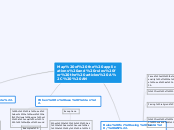Map of the applications and rules for the articles A, AN
When to use "a".
Use "a" in front of a word that starts with a consonant or "h" sucked.
Examples:
a boy = un chico.
a woman = una mujer.
a soldier = un soldado.
a house = una casa.
Exceptions.
If you are using a word with 'h' without sound.
As 'honourable' or 'honest', then you must use 'an'.
Therefore, he would be "an honourable man" and "an honest mistake".
When to use "an".
"An" is used when the word that follows begins with a vowel or "h" without sound.
Examples:
an actor = un actor.
an engineer = un ingeniero.
an egg = un huevo.
an hour = una hora.
Exceptions.
When the "u" has the same sound as the "y" in "you", or the "o" has the same sound as the "w" in "won", then you must use "a".
An example would be "a one-legged man" and "a European trip".
Rules for using "A / AN".
Faced with the nationality of the people used as names:
a German = un alemán.
an American = un americano.
In front of the professions:
I am a teacher = Soy profesor/a.
He is an architect = El es arquitecto.
Facing religions:
She is a Moslem = Ella es musulmana.
I am an Evangelist = Soy evangelista.
In front of "hundred", "thousand", "million":
a hundred pounds = cien libras.
a million pesetas = un millón de pesetas.
a thousand men = mil hombres.
In the following sentences:
60 miles an hour = 60 millas por hora.
Two pounds a dozen = Dos libras la docena.
Fifty pesetas a kilo = A cincuenta pesetas el kilo.
What a pity! =¡Qué lástima!
What a fright! = ¡Qué susto!
Such a nice girl! = ¡Una chica tan simpática!
Half an hour = Media hora.
Half a dozen = Media docena.
Without a hat = Sin sombrero.
